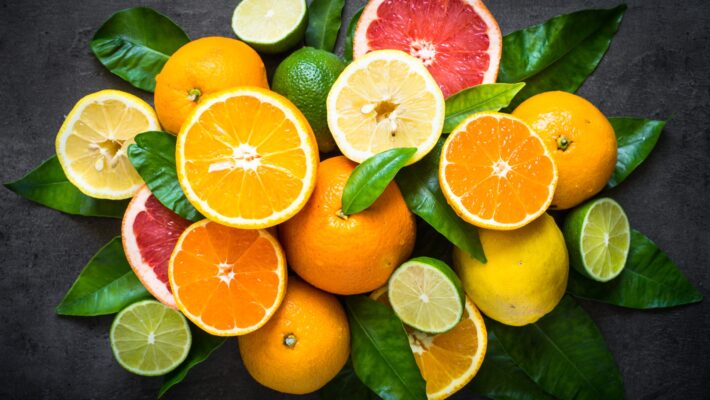
Citric Acid Alkaline Drink & High Oxalate Prevention
By Kurt N. Woeller, DO
Citric acid, found naturally in citrus fruits such as grapefruit, oranges, lemons, and limes, is a natural chemical inside our body involved in the citric acid cycle linked to mitochondrial function. The mitochondria are the energy producing factories of our cells.
One of the benefits of consuming citric acid (aka citrate) is its oxalate reducing potential in the kidneys and throughout the body. Oxalate binds with various minerals, but particularly calcium, and can lead to kidney stones or calcium-oxalate crystals in our tissues, e.g., joints, muscles. The citrate softens the oxalate crystals allowing for their enhanced removal from the body. Citrate also helps against oxidative stress reactions induced by oxalate (or other compounds), and offsets acid buildup in the blood, body tissues, and kidneys. This can reduce the potential for kidney damage, bone loss, poor cellular function, and overall reduction of stone formation. Another benefit of citrate is the induction of bicarbonate production from the liver to act as a systemic buffer against too much acidity.
Lemons are a great source of citric acid. A ½ cup of lemon juice daily is helpful in reducing the potential or recurrence of kidney stone formation. For therapeutic reduction of stone formation, the consumption of at least two fresh lemons per day is recommended, but it is important to realize that even ½ to 1 lemon daily fresh squeezed in purified water or taken as a shot will still provide health benefits.
For some added alkalizing benefits of fresh lemon juice, the use of the following products can be implemented as well:
¼ to ½ cup fresh lemon juice.
1/8 to ¼ teaspoon potassium bicarbonate.
1/8 to ¼ teaspoon potassium citrate.
½ to 1 cup filtered water.
For additional information about the benefits of citrate, other supportive supplements for oxalates, etc., read “Toxic Superfoods” by Sally Norton, MPH. The recipe for fresh lemon juice, potassium bicarbonate, etc. was adapted from this book.




